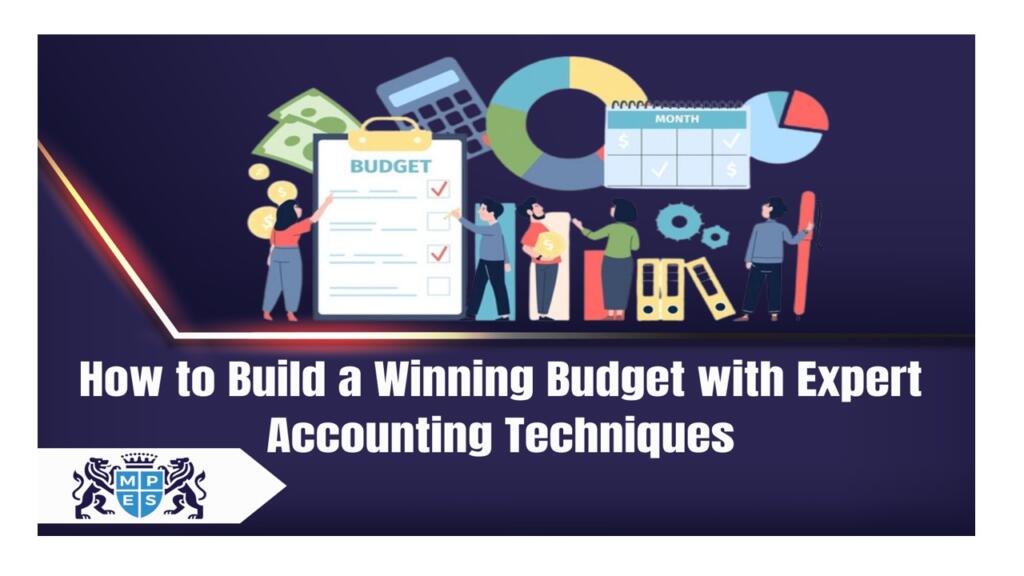Building a successful budget isn’t just about crunching numbers—crafting a strategic plan that aligns with your financial goals. Whether managing personal finances, a small business, or working toward professional qualifications like ACCA Foundations, mastering budgeting can pave the way for financial stability and growth.
A winning budget helps you track expenses and serves as a guide for achieving financial freedom. Applying Accounting Secrets to Effective Budgeting allows you to optimise your resources, eliminate wasteful spending, and secure a clear path toward your goals. Let’s explore the expert accounting techniques that will help you build a budget designed for success.
Table of Contents
- Techniques to Build a Winning Budget
- Conclusion
Techniques to Build a Winning Budget
Building a successful budget starts with understanding and applying expert accounting practices. Below are the key techniques that will help you craft a winning budget:
1. Analyse Your Financial Situation
It’s crucial to evaluate your present financial situation before creating a budget. Look over your assets, debts, income, and expenses to understand. To arrange your data, use courses like spreadsheets or accountancy software. This stage guarantees that you begin with correct data, the basis for a practical and workable budget.
2. Set Clear Financial Goals
Every excellent budget starts with clearly stated objectives. Outline your goals using the SMART framework, which stands for Specific, Measurable, Achievable, Relevant, and Time-bound. For example, saving for an emergency fund over a year can be divided into weekly or monthly goals. Your motivation and focus are maintained when your budget aligns with certain goals.
3. Categorise and Track Expenses
Monitoring sundry expenditures is one of the most important aspects of budgeting. Divide your expenditures into absolute needs, flexible ones, and luxuries like rent, electricity, food, gas, nightlife, and dining out, respectively. The best tools in useful accounting make it easy to track because these devices automate this process, offering real-time data on your spending habits. Similarly, nonprofits face unique challenges when it comes to financial oversight, and it’s useful to learn about accounting for charities to see how careful budgeting supports transparency and responsible fund management.
4. Prioritise Needs Over Wants
A sustainable budget requires being able to distinguish between essentials and indulgences. Prioritise necessities such as housing, food, and medical care before spending money on non-essentials. This strategy guarantees that your financial priorities are satisfied without sacrificing quality and preventing excessive expenditure.
5. Incorporate a Contingency Fund
Emergencies are bound to occur regardless of an individual’s best plans and can easily stop the best-laid budgeting plans. Savings is a portion of income normally saved and is recommended to be saved at 10 per cent. This gives a safety net to ensure you don’t have financial pressures when you have an accident, get sick, or your car breaks down.
6. Leverage Technology for Automated
The way you handle your finances might be completely transformed by technology. Automate spending tracking, monitor cash flow and create financial reports using Excel or accounting software like QuickBooks. In addition to saving time, automation lowers the possibility of human error, guaranteeing the accuracy of your budget.
7. Monitor Cash Flow Consistently
Both personal and business finances depend on efficient cash flow management. Reviewing them regularly ensures you’re keeping a healthy balance between your income and expenses. Finding areas of negative cash flow enables corrective action, while positive cash flow offers chances for investments or savings.
8. Review and Adjust Regularly
A budget is dynamic and changes based on your financial situation. Plan recurring evaluations to determine if you’re on pace to achieve your objectives. Adjustments may be required to account for unforeseen costs, shifts in priorities, or changes in revenue. Frequent evaluations guarantee that your budget stays applicable and efficient.
9. Integrate Savings Strategies
You should make saving money a priority in your budget. Whether your savings are for short-term goals like vacations or long-term ones like retirement, set aside a certain percentage of your salary for them, treat saving as an ongoing expense to develop financial discipline and increase your reserves.
10. Seek Professional Guidance
Regarding budgeting, professional help can sometimes make all the difference. Accountants or financial consultants can offer tailored financial optimisation techniques. This information becomes much more important for individuals studying ACCA Foundations, giving you the tools to assist others in reaching their financial objectives.
Conclusion
A good budget is the outcome of meticulous preparation and professional strategies. You may take charge of your financial destiny by using tools, keeping track of your spending, and implementing accounting secrets to efficient budgeting. With support from MPES Learning, these strategies will enable you to succeed, whether you’re a professional striving for ACCA Foundations or someone trying to enhance your finances. Begin now and see your financial objectives become a reality.
